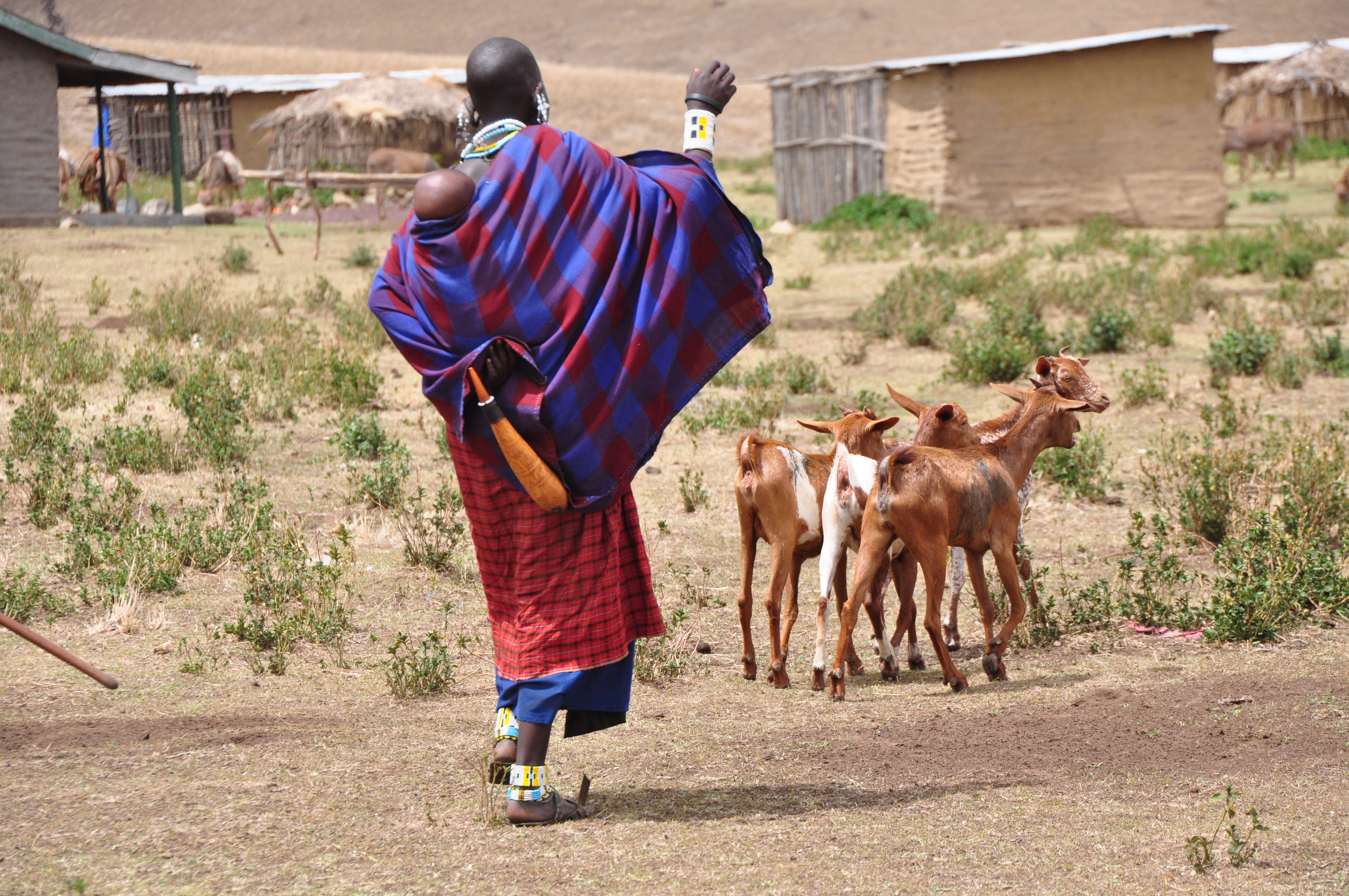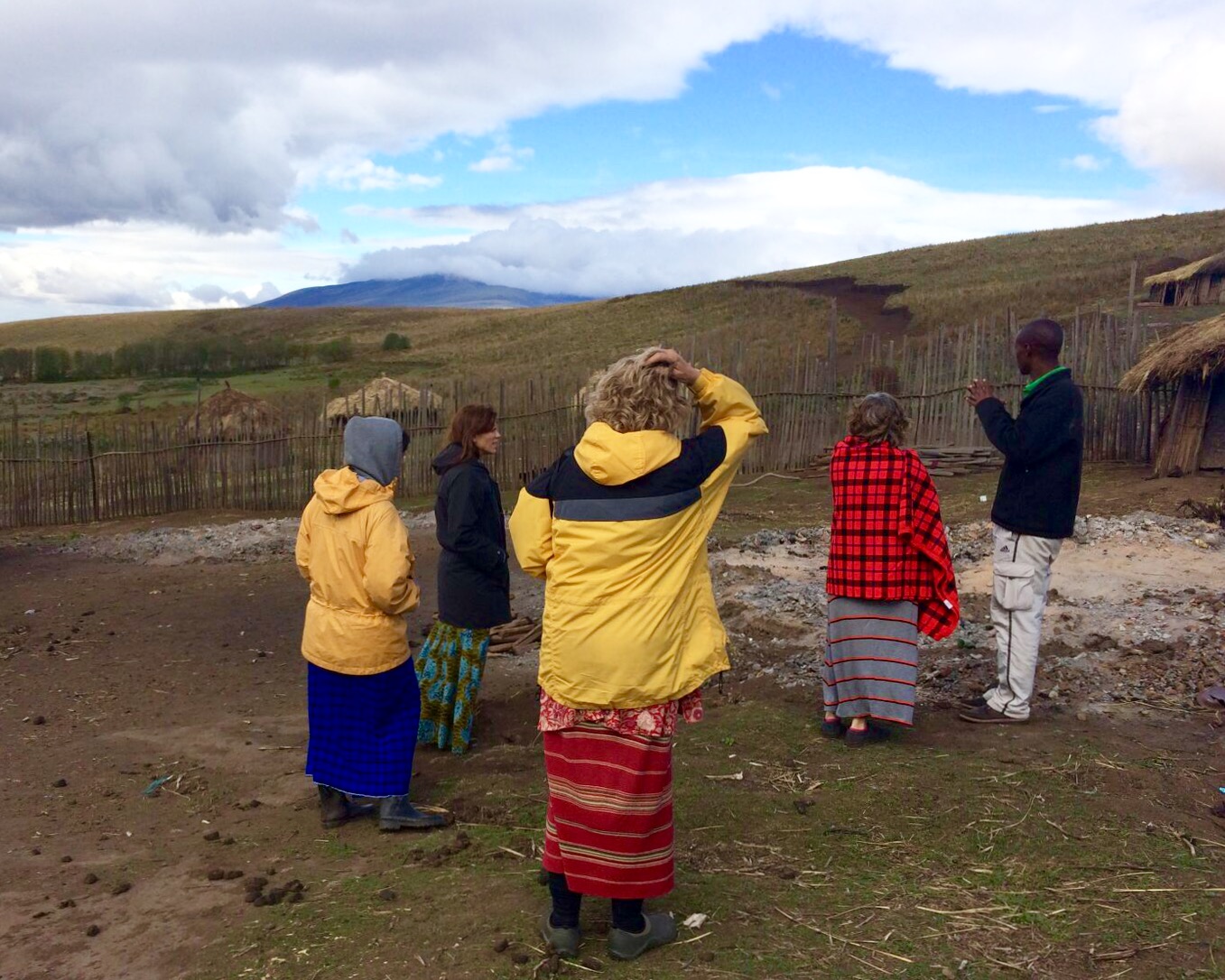 Hundreds of goats bleated, kept together in small groups with hand-braided rope, as bass pumped from a stationary car’s loudspeaker and colorful Maasai and Iraqw shoppers strolled the mnada for what they needed.
Hundreds of goats bleated, kept together in small groups with hand-braided rope, as bass pumped from a stationary car’s loudspeaker and colorful Maasai and Iraqw shoppers strolled the mnada for what they needed.
Mnada, literally translated as auction, is a large market that takes place in Karatu two times per month. Everything from used clothing to cucumbers to furniture and herd animals is sold, sometimes with a little haggling involved.

Our purpose in going to the market this time was not, as is usual, hunting for unique fashion finds, but to take part in the buying process of our goat program.
Under the direction of Goat Project Manager Lembeu Kitamwas, four helpers and AMSO (Alailelai Maasai Sustainability Organization) Program Director Mbekure Metemi carefully selected 96 young goats. Checking for signs of poor health, Lembeu picked only females.
As soon as they were deemed disease-free by the market veterinarian, Lembeu and his helpers began the two-day march to Alailelai Ward. The men and beasts first had to spend a night at the heavily-regulated gate to the Ngorongoro Conservation Area, within which our three service areas lay.

Several days later, we rejoined our staff and the goats in a grassy area in the center of Alailelai Village. A large group of women and babies sat and lay alongside but separate from a large group of men, ready to take part in a goat-giving ceremony—this was a big event for the village, and many neighbors not directly involved attended and gave thanks.

Local leaders and AMSO staff gave speeches about the project and AMSO’s work, thanking Judy for her huge support in their villages.Judy also addressed those gathered, explaining how she hopes the goats and AMSO’s other work will be building blocks of a stronger community and how grateful she is for those working toward that goal.
Then came the fun part—actually giving out the goats to those women villagers had decided were most in need. We couldn’t help but laugh a little when it took five grown men to wrangle a few young goats, but little escapees made their job a bit difficult.

These animals mean more to the Maasai women receiving them than just sustenance; they allow them to have a spot in their own society, where wealth and respect are measured by the size of one’s herd. Additionally, women don’t own property, so the goats give them independence. For three years, they cannot slaughter or sell their goats, so their numbers will increase. For the same reason, AMSO bought only females. This will ensure a source of milk and eventually meat.
The women here give a new meaning to multitasking—with virtually no help and the constant need to survive, they didn’t bat an eyelash as they herded their goats home, often with babies strapped to their backs and other little ones in tow.

Staying in the village for a week, eating and sleeping alongside our Maasai friends and seeing how intertwined their lives and livestock are, the importance of the goat project was clear. We plan to give out more goats in the future to help build up the greater Alailelai community. To give a goat, group of goats or medicine on someone’s behalf this holiday season, donate here. To read more in depth about our goat program go to our goat page.




